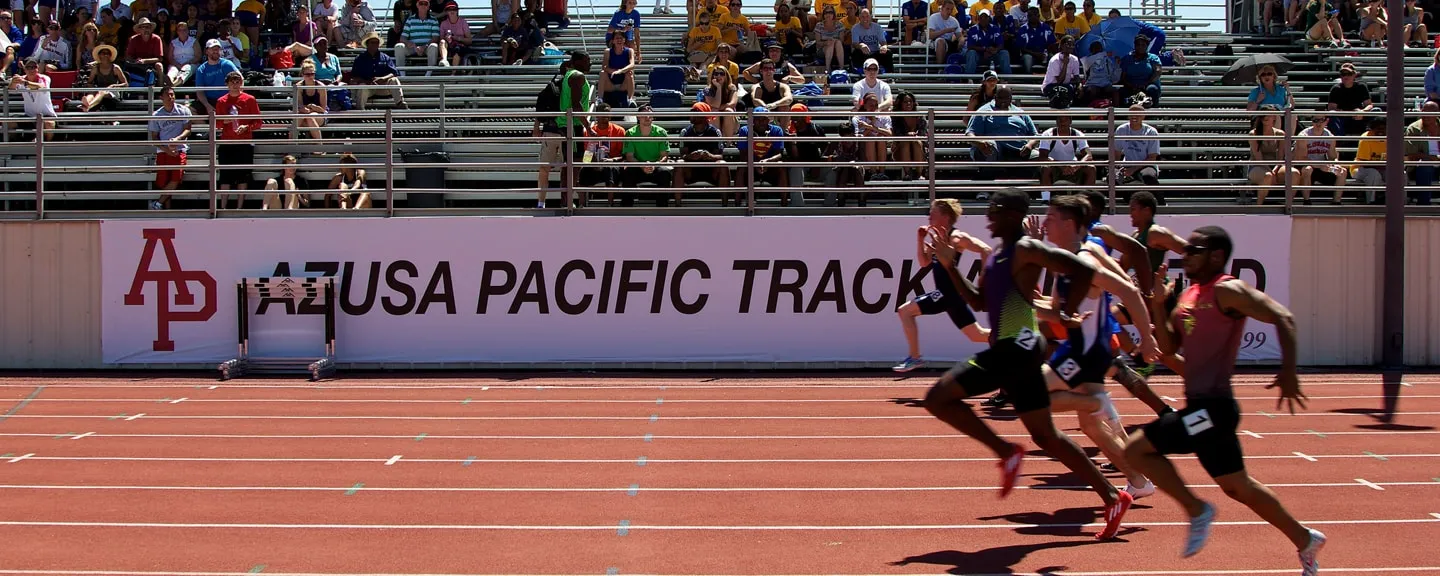- Home
- >
- APU Articles
- >
- News Article
What Are the Benefits of Being a Student-Athlete in College?
January 10, 2019 | Written By John Montesi

A Balanced Experience for a Lifetime of Success
Students-athletes often feel pressure to perform well on the field, and the added stress can detract from their academic or social success. According to Scott Hanson, whose daughters were student-athletes at Azusa Pacific University, the best thing that parents can do is simply support their kids with encouragement.
“Don’t put unrealistic expectations in their heads about college scholarships in high school because it will take away from their high school experience with their teammates and coaches,” Hanson noted.
One of the most complicated issues in many student-athletes’ careers is the sense that they are playing for reasons outside of themselves and their teammates. While scholarships can provide a tangible incentive for prospective student-athletes, placing this level of financial pressure on them can detract from the positive lessons they can learn both on the field and in the classroom.
Kimberley and Don Widmer, parents of two sons who play football at APU, agree. “Nothing encourages a student-athlete more than knowing that people who love him are there supporting, watching, and cheering them on,” the couple explained. “We also believe we need to teach our student-athletes to never quit no matter what. Win or lose, you handle it with dignity, grace, and humility.” These are lessons last a lifetime, while wins and losses fade quickly.
What Student-Athletes Should Consider
Remember, the college experience is multi-faceted. While academics come first—and athletics should also be a priority for those on a team—there are many other experiences to be had in college, as well.
“Focus on what will make the student-athlete happy and what they want out of their college experience, then support their choices,” Hanson said, in regard to his students’ holistic happiness as athletes. “Both my daughters started out at D1 and hated the experience. They chose APU and we were extremely happy they did because we wanted them to have a positive, all-around college experience.”
The Widmers echoed this sentiment, encouraging parents to ensure that the school and coaching staff their children are considering attending and playing for are a good fit. “Being in the place that fits them the best will help ensure their success in college, their sport, and later in life,” they noted.
This is what truly highlights the benefits of being a student-athlete in college. In the right environment, students will be nurtured in academics as well as athletics, and can prepare for a lifetime of success in all of their pursuits.
How to Find the Right Fit
It can be easy to focus on a school’s athletic facilities or prestige when debating where to enroll as a student-athlete. However, there is more to the college experience than simply competing in the nicest arena. Oftentimes, the choice to “stretch” for the most competitive athletic program within a student’s reach can prove detrimental to their athletic and academic endeavors.
“Be realistic in your child’s abilities,” Hanson advised. “If they have five NAIA offers, one D2 offer, and one D1 offer, your child is probably an NAIA athlete. We have seen so many of our daughters’ friends make the wrong decision and have bad outcomes.”
No matter how important athletics are to you and your child, make sure that you spend at least as much time on a more traditional campus and academic tour as you do on an athletic recruiting visit. Here are some thought-provoking questions you should ask before committing:
- Does the school have the major your child wants?
- Is the coach going to be there all four years?
- Is the coach recruiting players similar to your child?
- If your child weren’t playing sports, would he or she still attend that school?
At every level, the most successful athletes are also the healthiest and most well-rounded individuals. Azusa Pacific University focuses on a holistic educational and character-building experience, which helps student-athletes succeed in their sport—and in life.
Hoping to learn more about the athletic programs at APU? Check out the Azusa Pacific athletics website and see what it takes to become a Cougar.